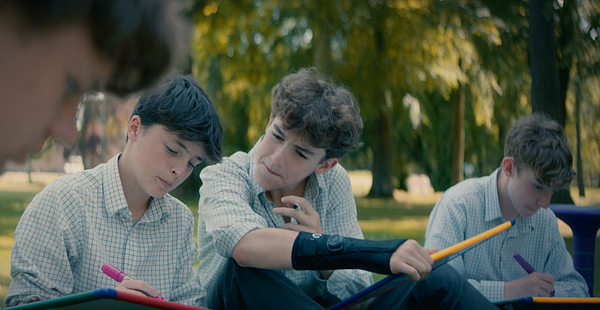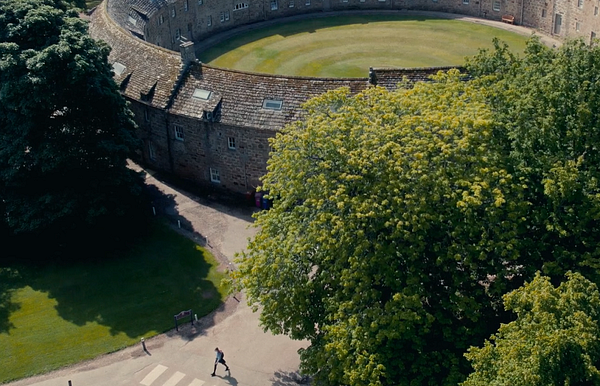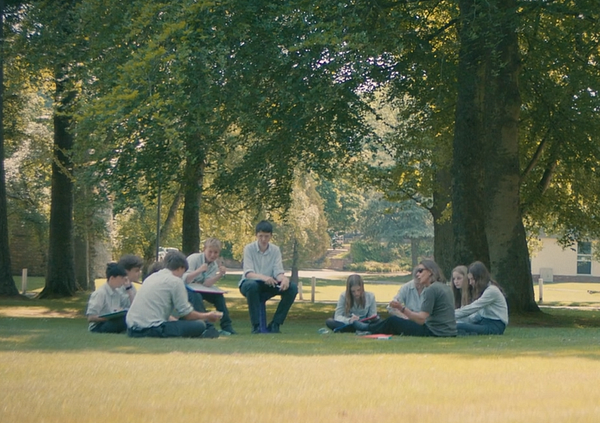New restrictions on mobile phones introduced at Gordonstoun
New restrictions on mobile phones introduced at Gordonstoun
By Lisa Kerr, Principal at Gordonstoun

Those who used RAAC to build schools may not have known the damage that might unfold decades later. But the signs are clear even today that children’s unregulated use of phones will retrospectively be judged one of the greatest damages we have inflicted on young people.
Jenny Gilruth, Cabinet Secretary for Education, is right to be “very interested” in the UN report which found that mobile devices can cause distraction, risk pupil privacy and lead to cyber-bullying. And it’s heartening the minister is considering cracking down on pupil use of mobile phones in Scottish schools.
In 2017 we ‘banned’ the use of phones during the school day at Gordonstoun and restricted the use of tablets and laptops to evenings. Some criticised this policy, arguing that we should be teaching young people how to use technology responsibly rather than removing it completely. But that misses the crucial point that mobile phone apps are literally designed to be addictive, to create regular dopamine mini hits. Asking children to have a phone in their pocket but not respond when it buzzes with a notification is like putting a bowl of M&Ms on their desk and asking them not to take one, even when no one is looking.
We only need to ask ourselves how hard we find it not to pick up our own phone, to understand how much harder it will be for a teenager whose pre-frontal cortex brain has not fully developed sufficient self-regulation.
The effect of our 2017 ban was immediately obvious: the school was noisier, and children spoke to each other rather than scrolling through their phone. They held real conversations, catching up with each other face-to-face, not via social media.

Concentration improved and, with it, exam results. Job done? Well not quite. Teachers still spotted kids sneaking a look at their phones in lessons, or as they walked around campus.
So, last week, we went a step further. Other than for our sixth formers, phones now need to be left in boarding houses during the school day and handed in overnight. And if older pupils are getting it wrong, we take their phones away too.
This is about the responsible use of technology; we do digital learning in spades, with laptops in every lesson, online guest lecturers, and AI a key learning tool. But mobile devices? Not anymore.
Teenagers may argue that it’s their right to have their phones. But we don’t allow them unfettered access to other addictive substances, so why mobiles? I believe it’s lazy, irresponsible, and dangerous not to place controls on young people’s access to an online world which they, and we, simply don’t fully understand and can’t control.
Earlier this week I had barely finished asking a group of students to “tell me honestly, are you using your phone less than before?” when they chimed in with “yes, definitely, we love it.” They feel free, can focus on their work and sleep better.
We want children to engage in real, not virtual relationships; we want them to hear the birdsong around them rather than music through their Airpods and we want them to be safe from algorithms which promote hate and harm. Teenagers rarely thank adults for placing boundaries, but we will never forgive ourselves if we don’t act now.

What our students say:
“It has been almost three weeks since the start of term and I have not seen any students complaining about the new phone policy. I think that the new mobile phone policy is a great opportunity for people to spend more time establishing healthy friendships and relationships with others and enjoy all the charms that Gordonstoun has to offer, including various activities.”
- Petar Beric
“I'd describe the new policy as a refreshing and surprisingly well received policy which is unfortunately not widespread nowadays. I'd also say that the impact has been very measurable as students seem to be a lot more social without the lingering distractions of their phones.”
- Gabriel zur Hausen
"At first, I thought there would be a backlash from students, however, everyone was cooperative. I've been in the school since year 9 and I am used to school life, yet with this new policy, I have noticed a significant difference in everyone's attitude. The school has become more sociable and more pleasant to be around. Overall, I believe that it has been a positive scheme that has improved school life for everyone."
- Rory Gordon
“I feel as though the mobile phone policy has shown an instant impact around campus, with increased socialisation, enjoyment of activities and productivity being key notable results. Overall, I think students are appreciating the improved wellbeing the policy has brought along.”
- Daniella Fagbemi
“I would say that the new policy has been effective especially for the younger years as it means that they can become less dependent on their phones. It seems to have gone down without much complaint which I was a bit surprised by.”
- Hector Stewart
"From what I have observed around school over the past couple of weeks, the new mobile devices policy is definitely achieving what it set out to. Social times are more interactive, and individuals appear to be immersed in their academics. I have never been amongst a cohort of students so invested in learning and interacting with their peers until now."
- Lucie Kealey
“The new mobile phone policy has created a positive change across campus. Mealtimes are more sociable and across school, people are having more real conversations with actual depth as opposed to surface level. Although initially, people were apprehensive about the thought of not having their phones on them constantly, most students are more than happy to follow the rules now. Personally, I agree with the new phone policy, as people are no longer having conversations with their headphones in, and everyone seems to be paying more attention.”
- Ruby Giddy
